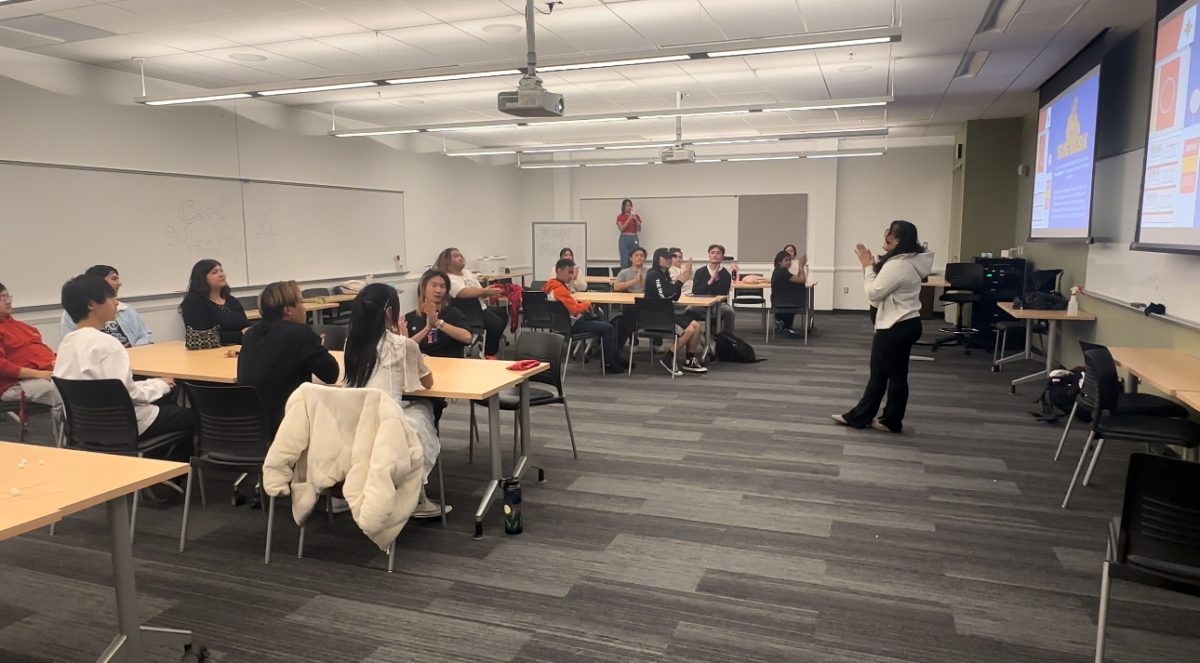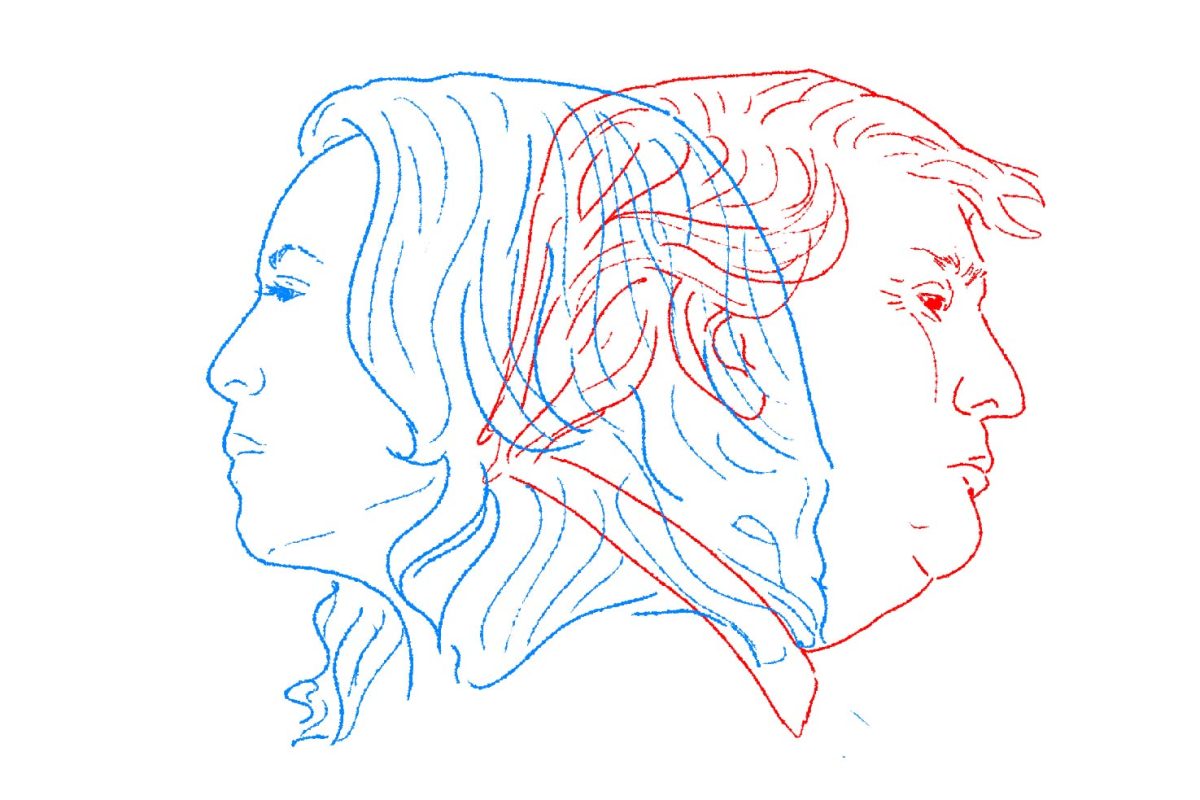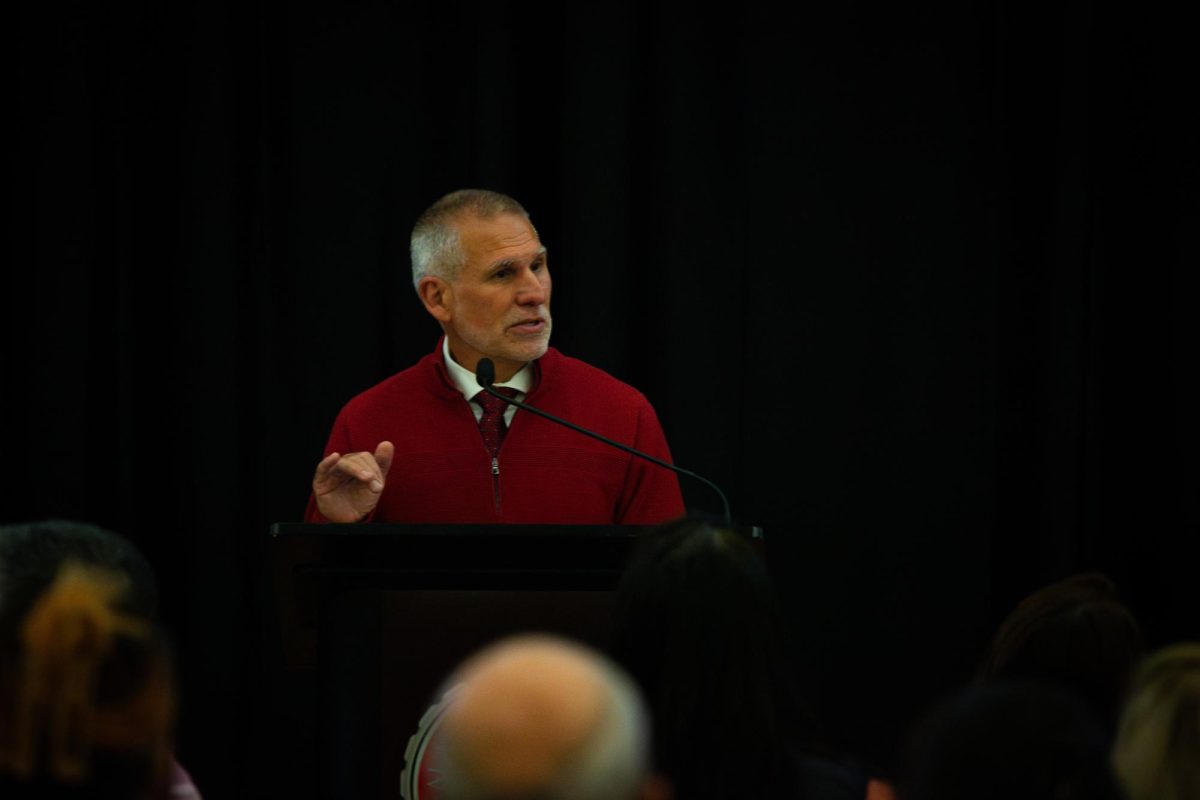As a first-hand victim of the brutalities of the state, Raymond Santana is now the voice for the voiceless. On April 19, 1989, a night in Central Park for then 14-year-old Santana would forever alter the trajectory of his life.
An Evening With Raymond Santana: One Man’s Journey From Wrongful Imprisonment to Exoneration, was held on Feb. 1, in the McIntyre Music Building. Santana shared the simultaneously heartbreaking and enraging story of his wrongful conviction that led to his exoneration.
In 1989, Santana, along with four other boys, Korey Wise, Kevin Richardson, Antron McCray and Yusef Salaam, would all be wrongfully convicted of attempted homicide and rape of Trisha Meili. At the time, these boys ranged in age from 14 to 16. Although there was little to no evidence supporting the fact that these boys had committed these crimes – other than the coerced confessions they gave after 15 to 30 hours of vicious interrogations – these boys would spend the rest of their teenage years and crucial years of their adult lives in prison.
It wasn’t until 2002, when most of the boys had already finished serving their sentence for the wrongful conviction, that the actual criminal, Matias Reyes, confessed that he, and he alone, was in fact guilty in the Central Park Jogger case.
You may be wondering how these boys were convicted of this heinous crime with little to no evidence supporting that they had done so. This grave injustice occurred because it was a failure of the state institutions, or rather, the state institutions working in the way they were intended to all along.
Santana and the other four exonerated were not just failed by the justice system and the police; they were also failed by journalists. Once news broke out about their case in 1989, media companies were quick to slander the boys in outwardly racist coverage of the case.
Luckily, Santana said in this regard he was ‘blessed’. “I never made bail,” Santana said. “So I stood inside the whole time… I was kind of sheltered from that a little bit [when he was on trial and while serving time in prison].”
However, once Santana was out of prison, that was a different story.“Once I started to understand the magnitude of when I got out… [it was like] walking on eggshells,” Santana said. “Socially, it was hard… The sentence that was given wasn’t just a death sentence, but it was social death.”
The economic repercussions Santana faced were just as challenging for him.“It was difficult to obtain employment,” Santana said. “There were no jobs for me… I’m filling out applications, and I am getting rejected… that’s what I had to realize ultimately, that once it has a hold on you, it’s very hard to get loose.”
The emotional impacts Santana faced after prison came as a shock to Santana. “If I was eating food, I would eat it in like 2.5 seconds,” Santana said. “If I took a shower… I would get in the shower with my boxers on… and then if there was somebody who was interested in a relationship and she had a child, no [that wouldn’t work] because I was considered a level three sex offender… that’s what ultimately led me back to recidivism because of all those aspects.”
Santana today has used his unfortunate experience to shed light on the horrors of the prison and justice system. Santana is currently doing work for the Innocence Project, a nonprofit organization aimed at freeing wrongfully convicted prisoners and working to reform the criminal justice system.
Through events like the one held on Feb. 1 at CWU, Santana aims to bring about change and highlight the work American politicians need to do to bring about that change.
“I feel like they [current American politicians] say nothing… the politicians have given us broken promises, and they [have] let us down so many times,” Santana said. “Even dealing with our [his and the four other boys’ wrongful conviction of the Central Park jogger case] we go through an 11-year civil suit with the city, and we went to the politicians. A lot of them [would say] ‘we’ll help you,’ and they never did.”
One of the issues Santana fights to change, as he has first-hand experience with it in prison, is the continuation of slave labor as prefaced in the 13th amendment. Santana, having worked in prison, carries a strong and insightful view on this. “You have to do something about that… because here it is that the system is operating on a level of punishment and not rehabilitation… and the only reason why they do that is because they’re chasing those million-dollar budgets,” Santana said.
In prison, Santana worked in a tailor shop and expressed how poor working conditions were, “The highest you can make… was 45 cents per hour… you start at like 16 cents [per hour].”
Santana’s work with the Innocence Project attempts to highlight and bring justice to similar wrongful conviction cases. “There have been over 300 exonerations… we know that a great population in prison are innocent… we know that for a fact… we know that because due to trumped up charges and how NYPD runs the system… and [how] the district attorney runs the system… and nobody’s doing anything about it because everybody’s getting paid.”
Cases like Santana’s leave the country to wonder what can be said about the systems in America. Santana, in his inspiring closing point, had this to say, “[it] says that those of us who are against it got a lot of work to do… we got to figure out a way how … [to] turn the system from being punishment back to rehabilitation.”






